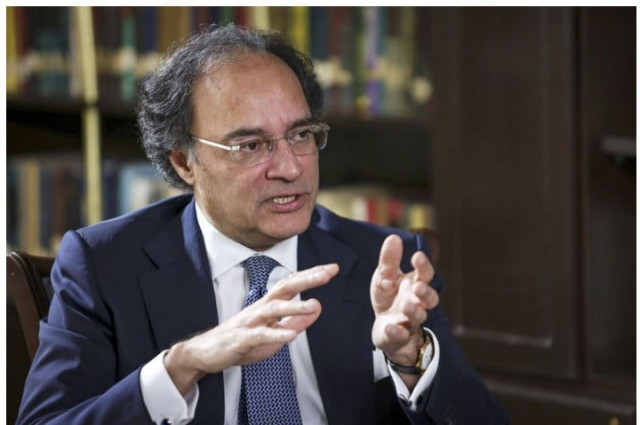Country's critical sectors need to be privatised: Aurangzeb
"No class or sector that can remain outside the scope of direct taxation," FM Aurangzeb on issue of tax evasion

Pakistan's Finance Minister Muhammad Aurangzeb has underscored the country's need to 'privatise' critical sectors of the country.
Speaking to media in Kamalia, Punjab, Aurangzeb emphasised the urgent need to address the unsustainable losses incurred by state-owned enterprises, a burden disproportionately borne by the public.
Highlighting a staggering example, the minister revealed that Pakistan International Airlines (PIA) alone has accrued losses amounting to Rs. 622 billion, recently shouldered by the government.
He added that looking ahead, the administration plans to initiate the outsourcing of airports, a strategic move intended to stimulate economic growth by leveraging private sector efficiency.
"In order for our nation to advance," the minister asserted, "we must entrust critical sectors to the private sector." Acknowledging the necessity of immediate relief measures, he reiterated the government's commitment to assuming full responsibility for mitigating losses and fostering a conducive environment for sustainable economic progress.
Saying that 'countries run on taxes, not charity' he also highlighted ongoing issue of tax evasion, noting that many individuals and businesses are avoiding FBR scrutiny due to concerns over harassment.
The FM also highlighted that the country's current Tax-to-GDP ratio of 9.5% was not sustainable. While education, universities, and hospitals can be sustained through donations, the country can only function through taxes, he said.
The minister highlighlighted that increasing the tax-to-GDP ratio to 13.5% is necessary.
“Our first approach is to bring all sectors that were previously excluded from direct taxation into the fold and secondly to phase out the tax exemption of 39 trillion rupees gradually.”
"We are bringing all other sectors into the tax net as well," he said, adding, "32,000 retailers have already registered, and taxes will be imposed on them from July. There's no class or sector that can remain outside the scope of direct taxation."
Highlighting the Track and Trace system, initially intended to start with the tobacco industry and extend to sectors like sugar, fertiliser, and cement, he lamented its delayed implementation, which resulted in unrealised revenue expectations.
The FM stressed that digitisation and automation within the FBR would play a crucial role in reducing corruption.
Aurangzeb highlighted concerns about reluctance among people to enter the FBR's tax net due to perceived harassment and the issuance of notices.
He noted, "People personally approach me with complaints. Having worked in the private sector myself, I understand these issues." However, he stressed that avoiding tax obligations due to these reasons is not justified.
The FM also addressed criticism over the government's spending, admitting that the government had not reduced its expenditure.
But he underscored that Prime Minister Shehbaz Sharif has announced the closure of PWD, saving around 3.5 to 4 billion rupees, a relatively small sum in budget terms but crucial for ongoing projects under its oversight.
Following this, a committee will propose closures and mergers of ministries next month to reduce expenditures effectively.



















COMMENTS
Comments are moderated and generally will be posted if they are on-topic and not abusive.
For more information, please see our Comments FAQ